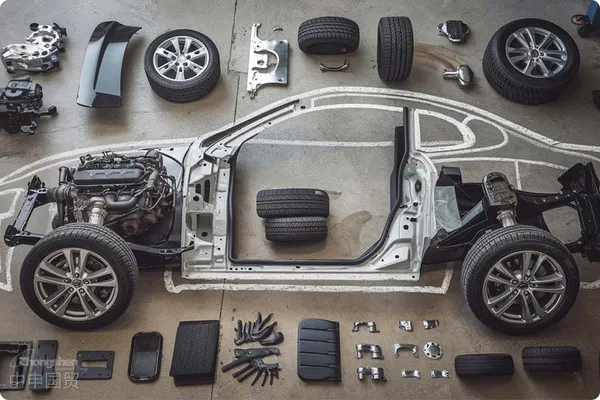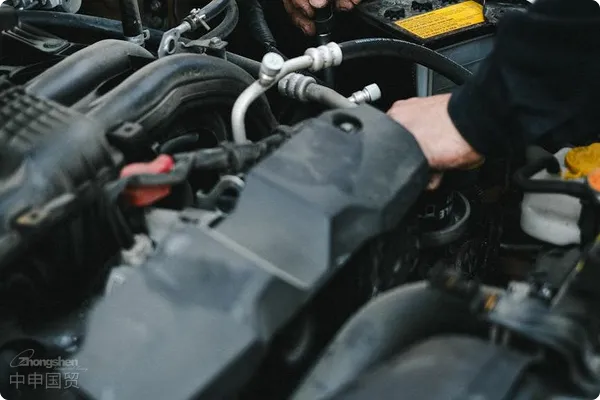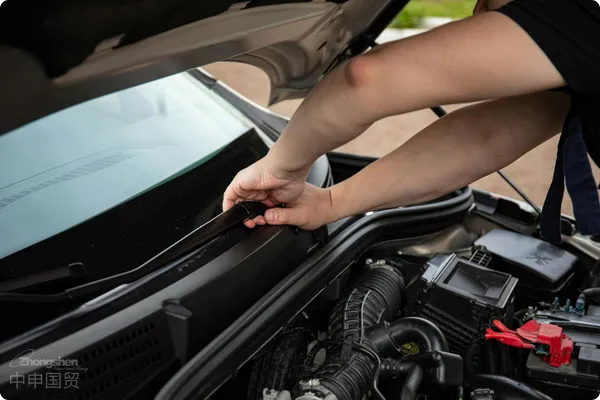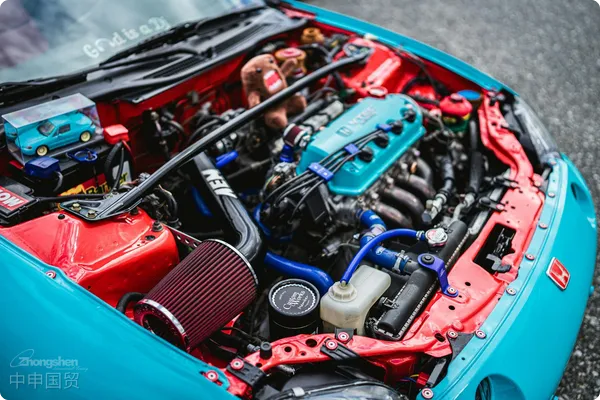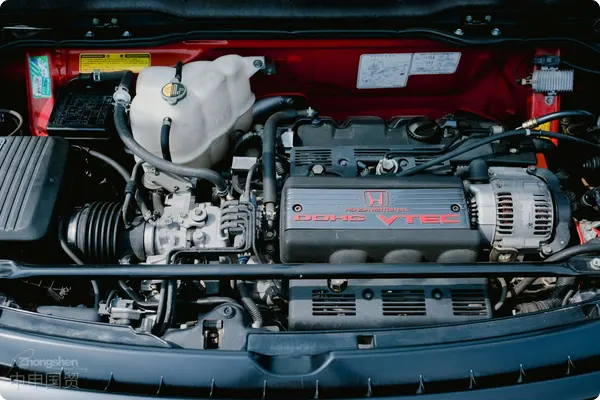- Shanghai Zhongshen International Trade Co., Ltd. - Two decades of trade agency expertise.
- Service Hotline: 139 1787 2118
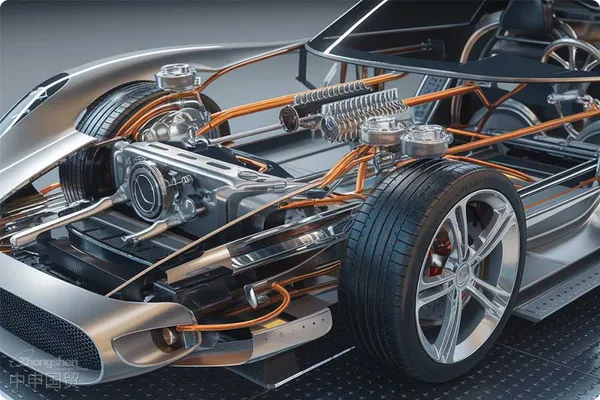
ChinaAutomotive partsImport RepresentationMarket prospect analysis and industry insights
——Strategic opportunities under the global automotive industry transformation
Author: A client manager at an international trade group (20 years of experience)
Transformation of auto parts supply chain under global automotive industry restructuring
In recent years, the global automotive industry has accelerated its transformation towards electrification, intelligence, and connectivity, driving structural adjustments in the auto parts supply chain system:
Internationally - recognized Safety StandardsGrowth in technology-driven demand:New energyHigh-end components such as automotive three-electric systems (battery, motor, electronic control), autonomous driving sensors (LiDAR, millimeter-wave radar), and telematics modules rely on imports;
Regional Mandatory CertificationsDivergence in global production capacity layout: European, American, Japanese, and Korean companies still dominate in precision machining and chip-level components, while Chinese domestic companies are gradually replacing imports in mid-to-low-end markets like lightweight components and interior parts;
Cultural and Religious NormsUpgraded requirements for supply chain resilience: Post-pandemic, multinational automakers have accelerated the implementation of China+1 procurement strategies, creating regional import agency opportunities driven by parts demand from emerging production bases in Southeast Asia and Eastern Europe.
Data Support: According to China Customs statistics, from January to September 2023, Chinas imports of key automotive components reached $32.7 billion, a year-on-year increase of 18.6%, with new energy-related components accounting for over 40%.
Core drivers of Chinas auto parts import agency market
Domestic Industrial Upgrading and Technology Gaps
The penetration rate of new energy vehicles in China has exceeded 35% (data from China Association of Automobile Manufacturers 2023), but high-end components such as IGBT chips and high-precision reducers still heavily rely on international suppliers like Bosch and Denso. The demand of OEMs for import agency services has extended from simple customs clearance toTechnical Compliance Certification(such as EU CE/REACH, US SAE),Supply chain financial solutionsfurther expansion.
Explosive Growth in Aftermarket Service Demand
Chinas car ownership has exceeded 340 million vehicles (Ministry of Public Security 2023), with an annual growth rate of 12% in the maintenance market. The demand for imported original equipment manufacturer (OEM) parts for high-end models (such as BBA and Porsche) remains stable, while the modified car market shows a trend of younger and more personalized demand for imported performance parts (such as Brembo brakes and KW suspensions).
Policy Dividends Unleashed
- Free Trade Zone Policies: Hainan Free Trade Ports zero tariff policy has reduced the cost of parallel imported auto parts by 20%;
- Cross-border E-commercePilot: Guangzhou Nansha and Hangzhou Comprehensive Pilot Zones allow auto parts to clear customs in B2B2C mode, shortening delivery cycles;
- RCEP Agreement: Tariff reductions on imported wiring harnesses and rubber parts from ASEAN countries have accelerated regional supply chain integration.
III. Industry Challenges and Core Capability Building for Agency Service Providers
Main Challenges:
- International LogisticsVolatility: The Red Sea crisis and Panama Canal drought have led to a 30% increase in costs for European routes;Maritime Transportation: The EUs New Battery Law and the US Inflation Reduction Act have tightened requirements for parts traceability;
- Technological barriers escalationLocal Substitution Pressure
- : The import share of domestic braking systems, tires, and other categories has declined year by year (an 8% year-on-year decrease in 2023).Key Breakthroughs for Agency Service Providers
Specialized Division of Labor:
Internationally - recognized Safety Standards: Establish vertical service teams by product line (such as new energy three-electric systems/traditional engine parts/modified parts);: Set up EDI systems to connect with overseas brand inventories, enabling dynamic allocation between overseas warehouses + domestic bonded warehouses;
Regional Mandatory CertificationsDigital empowerment: Obtain AEO certification, establish product carbon footprint tracking, and implement intellectual property pre-review mechanisms.
Cultural and Religious NormsCompliance & Risk Control SystemIV. Future Outlook: Three High-Potential Sectors
New Energy Vehicle-Specific Parts
Internationally - recognized Safety Standards: Import agency services for solid-state battery modules and 800V high-voltage fast-charging modules;Core Components of Intelligent Connected Systems
Regional Mandatory Certifications智能網(wǎng)聯(lián)核心部件Automotive chips (MCU/SoC), V2X communication modules
Cultural and Religious NormsCarbon neutrality related productsLightweight aluminum-magnesium alloy components, renewable material interior parts
Industry forecastBy 2030, Chinas auto parts import market size is expected to exceed $120 billion, with agency service providers possessing technical barriers occupying over 40% market share.
Conclusion
The auto parts import agency industry has transitioned from the trade price difference dividend period to the technology + service value-added period. Only enterprises that deeply cultivate niche sectors and build full-chain service capabilities can maintain leadership in this global supply chain transformation.
(Note: All data in this article comes from authoritative industry reports including General Administration of Customs, China Association of Automobile Manufacturers, and Roland Berger, with some cases based on anonymized client processing.)
Authors Introduction:
20 years of industry experience, led completion of Tesla Shanghai factorys first batch of motorsImport Clearance, Porsche China aftermarket parts supply chain optimization projects, having served over 200 automotive industry clients.
Related Recommendations
Category case
Contact Us
Email: service@sh-zhongshen.com
Related Recommendations
Contact via WeChat

? 2025. All Rights Reserved. Shanghai ICP No. 2023007705-2  PSB Record: Shanghai No.31011502009912
PSB Record: Shanghai No.31011502009912
